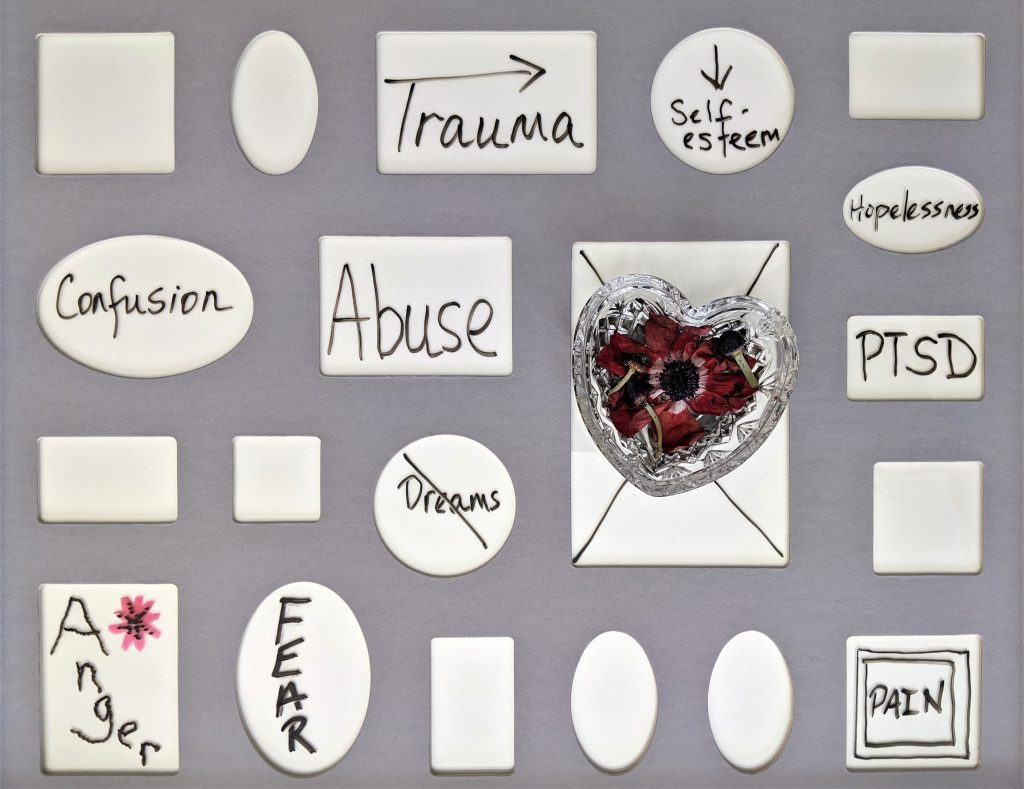Gaslighting: What It Is And How To Spot It.
The term ‘gaslighting‘ has become popular in media over the last decade, but what is it, and what does this toxic behavior look like? Most importantly, how do you stop it?
Gaslighting is a form of psychological abuse where a person or group makes someone question their sanity, perceptions, or memories.
In other words, gaslighting occurs when another person makes you think or feel crazy!
We will look at some common examples, signs, and causes of this common form of abuse. We will also discuss what to do if you suspect it is happening to you.
Examples of Gaslighting:
Gaslighting, like many forms of abuse, develops gradually over time. Because of its slow entry into a relationship, gaslighting can be difficult to detect. Various techniques can be used in gaslighting, making it challenging to notice and difficult to point out.
Types of Gaslighting:
Countering
Countering occurs when a person questions your memory of a situation. They may say things like You never remember’ or ‘You are forgetful, are you sure?’
Withholding
Withholding is a refusal to engage. A person who is withholding may pretend not to understand you, so they do not have to respond. An example of this would be someone saying, ‘I don’t know what you are talking about or. ‘you are confusing.’
Trivializing
Trivializing occurs when someone belittles or disregards another person’s feelings. The person may deny saying or doing something, or they may say that you are overreacting when you feel that you have a valid concern.
Denial
Denial involves the person pretending that they forgot an event or what occurred. The person may deny having said or done something. They may also accuse you or someone else of making things up.Diverting
This technique involves the person changing the focus of the conversation and questioning the other person’s credibility or actions.
Stereotyping
This technique occurs when a person uses gender, race, ethnicity, sexuality, or age to manipulate them. One example is brushing a female off as being ‘crazy’ or saying it is probably her time of the month. It may also involve convincing you that no one will believe you if you try to seek help due to the reasons listed above. (e.g., you are just an irrational woman, no one is going to believe that, they will know that you are crazy.)
Where Gaslighting Happens:
Gaslighting can happen in any relationship within your life and is not limited to romantic relationships. Colleagues, siblings, children, friends, and even professionals may be guilty of gaslighting.

Listed below are a few examples of gaslighting and the way they occur in various relationships.
Intimate Relationships:
Intimate partner abuse is one of the most widely researched forms of abuse, and one common place where gaslighting can be found. In a romantic relationship, one partner may accuse the other of being irrational or claim that they are crazy. This technique is used to isolate the person, undermine their confidence, and make them easier to control.
Child-Parent Relationships:
Gaslighting is also found in child-parent relationships. A parent may use gaslighting to control their child through shame or disregard of their thoughts, feelings, or memories.
Medical Gaslighting:
Medical gaslighting is a common occurrence. This form of abuse occurs when a doctor or medical professional dismisses or trivializes a person’s health concerns based on the assumption that they are mentally ill. For example, a 2009 study found that doctors were twice as likely to attribute coronary heart disease symptoms in middle-aged women to mental health conditions than middle-aged men.
Racial Gaslighting:
Gaslighting techniques are often applied to people based on their race. For example, a person may deny that discrimination exists against a particular group despite evidence that shows otherwise. This technique also occurs when someone claims an advocate group is ‘too sensitive’ as a way to undermine their message or downplay their cause.
Political Gaslighting:
This technique is probably one of the most widely used and accepted forms of abuse. This form of gaslighting occurs when lies, denials, or manipulation of information are used to control people. For example, when a political party uses campaign ads to sway voters or causes a distraction by turning attention to a negative aspect of their opponent.
Institutional gaslighting:
Gaslighting also occurs within institutions. Companies and organizations are no less guilty of this crime. When a company hides or withholds information or lies to employees about their rights, they are gaslighting. Companies may also make whistle-blowers out to be incompetent workers or may claim they have a mental illness to undermine their claims.
Signs of Gaslighting That You Should Know:
When you are on the receiving end of gaslighting, it is often difficult to realize it is happening.
Although it can be challenging to spot, the signs of gaslighting are often present if you pay attention and know what to look for.
Gaslighting Is Synonymous with Lies:
Someone who is gaslighting will outright lie to you with a straight face, and although you know they are telling a lie, you may begin to question yourself and your judgment.
Gaslighting Means Living In Denial:
You are 100% sure that this person said they would do something, but they deny ever saying it when you confront them.
Gaslighting Involves Being A Master Of Manipulation:
When someone is gaslighting, they will use what is nearest and dearest to you to get what they want. People who have experienced gaslighting say that their abuser would often use their children as a means of control or belittle them about their parenting.
Gaslighting Is A Lot Like Chess:
This form of abuse is slow and steady. It does not come on suddenly and take you by surprise. Instead, it is slowly introduced and grows over time. This makes it difficult to spot a gaslighter, especially when you are the victim of their abuse.
Actions And Words:
Often the abuser’s words will not match up with their actions. This is one of the more apparent signs of gaslighter abuse.
A Gas Stained Mirror:
They drink excessively, lie constantly, or have cheated in the past, yet they always accuse you of these things. Gaslighting involves projecting behaviors onto others as a means of distraction. By accusing you, your attention becomes focused on defending yourself rather than their behavior.
Gaslighters Like Confusion:
Being confused makes us weak. A gaslighter will use confusion as a tactic that they utilize to make you question yourself.
Gaslighting Involves Manipulating Everyone Around You:
The abuse does not start and stop with you. Instead, the abuser will try to manipulate everyone around you in an attempt to turn them against you. These abusers will use those around you to make you feel worthless or get you to question yourself. They will say things like, ‘Your sister knows you’re crazy too’ or ‘Your friend even told me that you are lying.’

Effects of Gaslighting:
Gaslighting involves controlling others. Gaslighters are out for their own gain. They are often focused on what they want, and nothing else matters. The impact that this can have on victims can be devastating.
- Gaslighting will leave you feeling lost and confused.
- Victims of abuse may be unable to make simple decisions.
- You may find yourself defending abusive behavior.
- Emotional abuse can cause you to become withdrawn and antisocial.
- Abuse of this type will change the way that you think.
- Gaslighting can destroy your self-confidence and self-esteem.
- Abuse will often cause you to lose your sense of self.
Gaslighting can also lead to anxiety, depression, and even suicide because victims of this form of abuse constantly question themselves because they are suffering consistent, recurring trauma.
What Causes Gaslighting?
As with all abuse, gaslighting may stem from various things. According to the Good Therapy Blog, this form of abuse is used to gain power over people. This need for domination can arise from narcissism, antisocial personality, or other deep-rooted issues. Those who utilize this type of abuse as a means of control may also have personality disorders or may have learned the abuse tactics in their own life or childhood. Without the help of a therapist, the specific cause is unknown because it will vary for each person.
There are a few things that we know for sure, however:
- There is a constant need for admiration and attention.
- Abusers believe they are better than everyone else.
- There is a lack of empathy.
What To Do If You Are In An Abusive Relationship:
If you believe that you are in a relationship that involves gaslighting, you must seek help. Gaslighting can have severe repercussions and will take its toll on your mental health. Call your local support shelter or seek out a therapist.
If you are unsure if you are in a relationship that involves gaslighting, there are things you can do to decide if you need help:
- Secretly keep a record of the behavior, including the date, time, and as many details as you can.
- Talk to someone you trust about your concerns.
- Take pictures if that will help – having photos will provide you with evidence that may be useful later.
- Assess the situation from an outside perspective – see it through unbiased eyes.
- Find support. There are support groups online and off to help people living with or dealing with gaslighting. Seek one out and ask for support and advice.
- Trust Your Instincts! If you believe that you are experiencing gaslighting, then the chances good that it is true. Learn to trust your instincts and do not question your beliefs. Your gut can tell you a lot about what is right and what is wrong. Learn to listen to it.

Final Note:
if you or someone you know is experiencing gaslighting but is not ready to leave their abuser, try to be supportive. Gaining the courage to leave an abusive relationship takes time, and many people attempt to get out many times before they are successful. Be an understanding ear when they need it and refrain from passing judgment. What this person needs right now more than anything is someone that they can talk to and trust. They are ridiculed enough at home, and they do not need it from you as well.
Until Next Time,
Stay Safe.
For more information and resources, please visit:
https://www.therecoveryvillage.com/resources/domestic-violence/